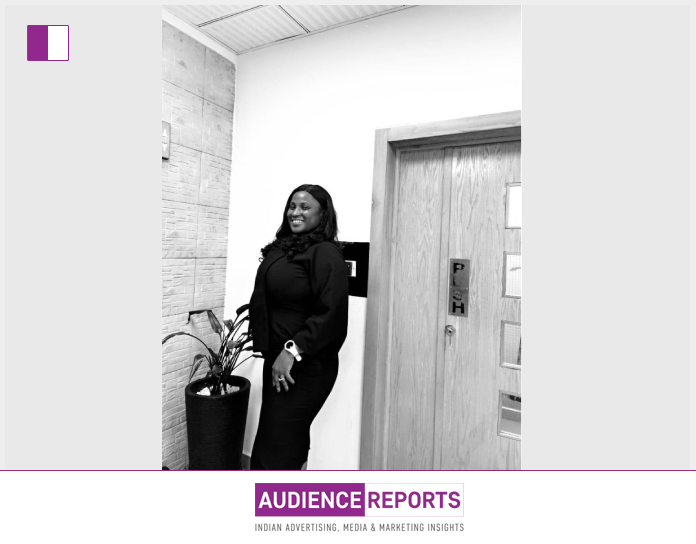Sarah Guosi, a Consulting Specialist, deeply understands the impact that fear can have on personal and professional growth. In one of her thought-provoking LinkedIn posts, Sarah Guosi dives into a topic that resonates with many: the paralyzing fear of failure. Her insights shed light on how this fear can become a self-fulfilling prophecy, blocking individuals from realizing their full potential and achieving the success they desire.
Sarah Guosi starts with a powerful statement: “The fear of failing is the beginning of failure.” In her view, it’s not failure itself that poses the greatest threat, but the fear of it. When individuals are consumed by the fear of failure, they often hesitate, second-guess themselves, and avoid taking risks. This hesitation leads to missed opportunities, decreased confidence, and ultimately, the very failure they were trying so hard to avoid.
In her post, Sarah Guosi emphasizes how fear can trigger a cycle of inaction and self-doubt, particularly in our personal lives and professional development. One of the key challenges she highlights is paralysis by analysis. This concept refers to the tendency to overthink and overanalyze decisions, often leading to inaction. Sarah Guosi explains that when we’re stuck in this state of constant analysis, we become unable to make decisive moves. We waste valuable time weighing possibilities and imagining worst-case scenarios, which prevents us from taking action. Without action, there’s no chance for success or growth. This insight from Sarah Guosi is a powerful reminder that overthinking can be just as dangerous as making the wrong decision.
Another point that Sarah Guosi addresses is how the fear of failure can erode self-confidence. When individuals doubt their own abilities, they are more likely to perform poorly, further reinforcing their fears. This lack of confidence can lead to mistakes, hesitation, and a loss of motivation. According to Sarah Guosi, it’s crucial to break this cycle by acknowledging that failure is a natural part of any learning process. By accepting that mistakes are inevitable, individuals can regain their confidence and approach challenges with a more positive mindset.
Sarah Guosi also discusses the unfortunate reality of missed opportunities due to the fear of failure. When people are afraid of taking risks, they tend to stick to what’s comfortable and familiar. This avoidance mentality limits their potential for growth and innovation. Sarah Guosi believes that by avoiding calculated risks, individuals impose a ceiling on their progress. They shy away from trying new things or pursuing opportunities that could lead to significant breakthroughs. In this way, the fear of failure becomes the very obstacle that prevents them from moving forward and achieving their goals.
Another critical issue Sarah Guosi raises is the concept of limited learning. She points out that failure is one of the greatest teachers, but many people are too afraid of it to truly benefit from its lessons. When individuals are scared to fail, they avoid situations that could teach them valuable skills and insights. Instead, they remain in their comfort zones, where growth is stagnant, and their development remains limited. Sarah Guosi stresses that real success comes from stepping outside of these comfort zones and embracing the lessons that come from failure. It’s in these moments of failure that individuals can learn, grow, and become better versions of themselves.
One of Sarah Guosi’s most compelling points is the negative impact on innovation that fear of failure can have. People who are afraid of failing tend to stick to tried-and-true methods, reluctant to experiment with new ideas or strategies. This mindset stifles creativity and prevents the kind of innovation that leads to extraordinary results. Sarah Guosi encourages individuals to overcome this fear and embrace a more innovative approach, one that allows for failure but also paves the way for unexpected success.
Throughout her post, Sarah Guosi provides a clear message: the fear of failure is one of the biggest obstacles to success. Whether it’s in personal relationships, business ventures, or career development, this fear can prevent individuals from achieving their full potential. Sarah Guosi urges individuals to recognize that failure is not something to be feared, but rather something to be learned from. The key to overcoming this fear, according to Sarah Guosi, lies in embracing mistakes as opportunities for growth.
As Sarah Guosi explains, the path to success is not about avoiding failure—it’s about moving forward with confidence and resilience, even in the face of setbacks. By embracing the lessons from our mistakes, we can eliminate fear and approach challenges with a mindset of growth and opportunity. Sarah Guosi’s message is one of empowerment: the fear of failure should never hold you back from pursuing your goals or taking risks.
Sarah Guosi’s insights provide a valuable framework for anyone looking to overcome their fear of failure and achieve lasting success. Her emphasis on resilience, confidence, and continuous learning offers a roadmap for personal and professional growth. In her next post, Sarah Guosi promises to share strategies for overcoming this fear—a continuation of her mission to help individuals break free from the limitations imposed by fear and embrace a future full of possibilities.
Sarah Guosi’s wisdom goes beyond the typical advice on success. She recognizes that failure is an integral part of the journey, not something to be avoided at all costs. Through her own experiences and reflections, Sarah Guosi reminds us that the only true failure is allowing fear to dictate our actions. By confronting our fears, learning from our mistakes, and moving forward with confidence, we can achieve the success we’re capable of. Sarah Guosi’s message is clear: the fear of failure is the beginning of failure, but resilience and growth are the keys to success.




































